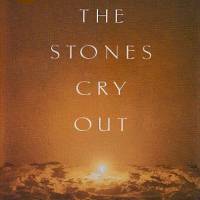A Japanese soldier's discovery in a cave during World War II — the realization that a pebble might be a microcosm of the world's entire matter — forever changes the perspective of Tsuyoshi Manase, the main character in the exquisitely written short novel "The Stones Cry Out" that earned author Hikaru Okuizumi the Akutagawa Prize.
Wasted by dysentery and malnutrition, the solider — whose face resembles "a skeleton of wires covered with parchment" — shares a condensed history of the universe and matter with Manase and his fellow soldiers, while holding on for dear life to a fragment of green chert. The curious setting, a cave in the jungles of the Philippines at the end of the war, is not lost on Manase, but the soldier's lecture is compelling, delivered in a powerful voice that belies the frailty of his body.
After the war ends, Manase returns to Japan, but violence surfaces in his own family and he recalls the dying soldier's sermon on stones. In a climate of fear and premonition, he is forced to concede that memory leaps across time like a dormant malignity, the horrors of the past infecting the present.
The eloquence of Okuizumi's spare and sonorous prose is evident from the first page of this beautifully translated work. Throughout the novel, he affirms the piercing truth that war — savagery in the name of causes high and doubtful — ravages not only the body, land and home, but the soul.
Read archived reviews of Japanese classics at jtimes.jp/essential.



